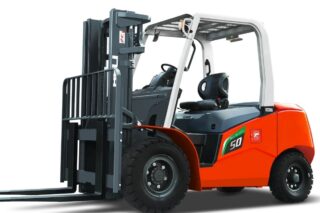Last week, Rockwell Automation unveiled a suite of powerful tools at Automation Fair designed to optimize manufacturing processes from end-to-end. These integrated solutions empower manufacturers to improve operational efficiency, enhance production quality, and streamline maintenance practices. By leveraging advanced technologies such as artificial intelligence (AI), machine learning, and digital twins, Rockwell’s tools help manufacturers achieve greater productivity and smarter, data-driven decision-making.
At Automation Fair last week, which DirectIndustry was invited to attend, Rockwell’s executives, including Tessa Myers, Senior Vice President, Intelligent Devices, emphasized how these tools create seamless integration across the manufacturing process. Myers highlighted that the goal is to bring together cutting-edge technology in an integrated solution, making it easier and faster for manufacturers to deploy these systems and see results.
Below is a comprehensive overview of Rockwell Automation’s (new) tools that can help manufacturers orchestrate their entire production cycle, from design to maintenance.
1. Emulate3D: Virtual Testing for Machine Systems
Emulate3D is a digital twin software designed to enhance machine design and performance. It allows manufacturers to create virtual models of machinery and systems, enabling visualization and testing of machine operations before physical prototypes are built. This approach helps identify and resolve control issues early, reducing on-site commissioning time and costs. By integrating with FactoryTalk® Logix Echo, Emulate3D enables the creation of virtual representations of controllers, drives, and devices, simulating real-world systems with high accuracy.
Through Rockwell’s partnership with NVIDIA, Emulate3D now integrates with NVIDIA Omniverse to provide immersive, collaborative simulations. This helps manufacturers test and validate entire production lines virtually, ensuring smoother real-world implementation and reducing costly changes during production.
2. Plex Supply Chain Planning: Managing Uncertainty in Supply Chains
The start of any production order requires planning, forecasting, and scheduling. However, customer expectations and demands are often unpredictable. Additionally, since the pandemic and recent geopolitical instability, supply chains have become more volatile—and this trend is expected to continue in the coming years.
Rockwell offers supply chain planning tools to help manufacturers gain better visibility and more accurate forecasting for their business. Their Plex Supply Chain Planning, ERP, and MES solutions enable manufacturers to predict production demands with greater accuracy.
These tools provide the necessary data to understand customer demand, production schedules, and inventory management. With this information, manufacturers can gain valuable insights and make informed decisions to optimize their operations.
3. Plex Finite Scheduler: Smarter Production Scheduling
Production scheduling is also a complex task, with one of the main challenges being the lack of accurate information. Manual production scheduling is often disconnected from what’s actually happening on the factory floor. For example, it may not take into account machine availability, throughput rates, or the availability of resources and tooling.
Rockwell Automation’s Plex Finite Scheduler helps manufacturers streamline their production scheduling processes. The tool aggregates data from various sources, such as available materials, tooling, and planned maintenance schedules, to create more accurate production plans.
PLEX also leverages industrial AI to make better predictions. By integrating diverse data points—such as customer sales trends and internal production data—the system can forecast production needs more effectively. This leads to improvements like reduced inventory and increased throughput.
According to Tessa Myers:
“With the application of these tools, we’ve been able to decrease customers’ on-hand inventory by 20%.
One of their customers was even able to boost their throughput by over 100% with the use of better tools and planning.
READ ALSO
4. AMRs, iTrack, and MagneMotion: Automating Material Movement
Material movement within many manufacturing facilities remains a labor-intensive, manual process. It requires significant human effort to transfer materials to production lines and store finished goods. The challenge is that the workforce, a critical resource, is becoming increasingly constrained.
Deloitte estimates that up to 3.8 million manufacturing jobs in the United States alone could remain unfilled in the coming years, with similar trends expected globally. This highlights the need to optimize workforce deployment, focusing on high-value tasks where human expertise is indispensable. Consequently, adopting advanced material handling technologies is more important than ever.
Rockwell Automation already offers independent cart systems such as iTrack and MagneMotion. Since last year, the company has expanded its product offerings through the acquisition of autonomous mobile robots (AMRs) from OTTO Motors.
By adopting these technologies, manufacturers can automate material movement, freeing up their workforce to focus on tasks that have a greater business impact. According to Rockwell, companies that implement these solutions have experienced substantial benefits, including over a 25% reduction in downtime, significant increases in throughput, and millions of dollars in savings.
5. FactoryTalk Data Mosaix: Optimizing Plant Operations with Data
To remain competitive, manufacturers must continuously optimize their operations. Visibility across the plant floor, from individual machines to entire production lines, is critical to achieving this goal. Manufacturers can unlock significant value by ensuring industrial assets are equipped with the right data and infrastructure.
Rockwell’s FactoryTalk Data Mosaix platform is an industrial data operations (DataOps) solution specifically designed for operational technology (OT) environments. It connects smart machines and ensures that data from equipment is easily accessible, unlocking actionable insights from this operational data.
FactoryTalk Data Mosaix enables users to collect and aggregate data from a variety of equipment and machinery across the plant floor. This aggregated data is then contextualized to ensure it provides meaningful insights rather than isolated, fragmented metrics. The platform presents this information in intuitive visual formats, such as knowledge graphs, allowing manufacturers to visualize the relationships between variables, processes, and data points. This helps them understand complex processes, identify inefficiencies, and pinpoint areas for improvement.
By organizing and comparing process variables and key data points, manufacturers gain a clearer understanding of their operations. These insights empower informed decision-making, leading to improved efficiency, reduced downtime, and enhanced performance across the plant.
Rather than being overwhelmed by the vast volume of data generated by modern industrial equipment, companies can focus on the most relevant metrics aligned with their goals.
6. FactoryTalk Energy Manager: Managing Energy Consumption
Modern manufacturing demands not only operational efficiency but also alignment with sustainability goals. Tools like FactoryTalk Energy Manager aggregate energy data from equipment to optimize consumption, aligning production efficiency with sustainability objectives.
Built on FactoryTalk Data Mosaix, Energy Manager specializes in harnessing energy data generated by various devices in manufacturing systems, such as variable frequency drives (VFDs) controlling motors and other sensors. By aggregating and contextualizing this information, the tool provides unparalleled visibility into energy consumption across the plant.
For example, manufacturers can track energy consumption at various levels—from the entire plant to specific production lines and even down to individual products. This enables them to identify energy-intensive processes and implement targeted initiatives to reduce energy usage.
7. Plex Quality Management Solution: Ensuring Quality Performance
Quality is a key operational goal for many manufacturers, but achieving high-quality standards can be challenging without proper tools for managing workflows and data. The Plex Quality Management Solution helps manufacturers automate quality data collection and provides visibility into quality performance across the plant.
One example of its impact is Promethean Tire Group, which improved efficiency and reduced scrap after implementing this digital platform. By leveraging FactoryTalk Production Center and Plex Quality Management, manufacturers can better manage operations and improve product quality.
8. FactoryTalk Analytics VisionAI: AI-Powered Quality Inspection
At this year’s Automation Fair, Rockwell Automation introduced its new FactoryTalk Analytics VisionAI. This advanced vision inspection system is designed to enhance quality control in manufacturing. It leverages artificial intelligence (AI) and machine learning to enable manufacturers to detect subtle product anomalies and take corrective actions.
The system identifies and classifies defects in products that were previously undetectable, providing actionable insights to improve product quality. Manufacturers can remotely manage inspection systems and have access to centralized visibility into quality data from any location.
VisionAI offers pre-built dashboards, automated reporting, and quality event notifications. It supports real-time inspections at production speeds using off-the-shelf components and integrates with standard Rockwell Automation hardware, such as Logix PLCs.
9. Guardian AI: Predictive Maintenance
Rockwell Automation’s Guardian AI is designed to help manufacturers manage and maintain their equipment. By leveraging existing plant sensing technologies, this innovative solution transitions maintenance strategies from reactive to predictive, reducing downtime and enhancing operational efficiency. It aims to simplify the design, operation, and maintenance processes across industrial plants.
Guardian AI utilizes the sensing infrastructure already in place—both hard sensors (physical devices) and soft sensors (virtual or inferred sensing). It monitors equipment signals, identifies potential issues, and proactively detects maintenance needs before they escalate into costly failures.
The first implementation of Guardian AI focuses on integrating with Rockwell Automation’s PowerFlex® drives, a critical component in many industrial operations. This initial rollout marks the beginning of a broader strategy to incorporate additional devices into the Guardian AI ecosystem, expanding its predictive maintenance capabilities across a wide range of equipment.
When combined with Rockwell’s Computerized Maintenance Management System (CMMS), Fiix®, Guardian AI takes maintenance automation to the next level. The predictive insights from Guardian AI can automatically trigger workflows in Fiix.
For example, it can automatically generate work orders based on detected maintenance needs. This integration significantly reduces manual intervention, allowing teams to focus on higher-value tasks while ensuring that maintenance issues are addressed promptly.
The intuitive integration of Guardian AI with existing systems makes predictive maintenance accessible and scalable for many manufacturers.











